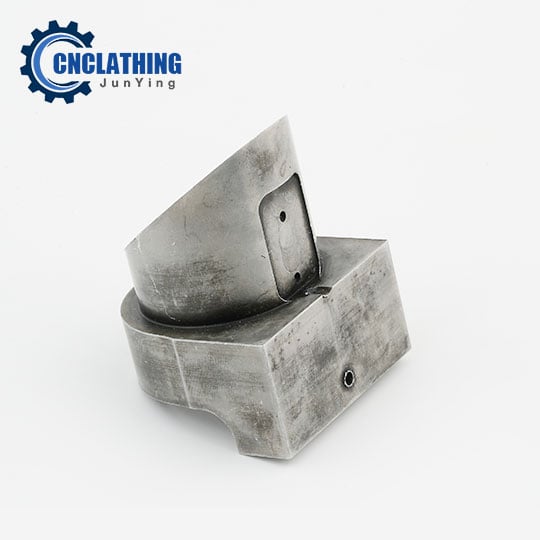In this guide, CNClathing.com will introduce a new CNC machining metal material – steel, with machining steel types, properties, applications and more.

CNC Machining Materials – Steel for CNC Machining
Steel is an iron carbon alloy with carbon content between 0.02% and 2.11%. The composition of steel can vary greatly, which influences its characteristics. The steel with carbon content up to 2.1% by weight is called carbon steel. With its low price and reliable performance, steel has become one of the most used metal materials in construction, and manufacturing, steel CNC machining provides amounts of high-quality precision machined components for various industries.
Machining Steel Types & Properties
Steel offers lots of options to be applied in various condition, what is the best steel for machining? Check out the common steel types and steel machining properties as below.
– 1008 Steel: moderate strength and toughness, good matte surface finish, can be cold formed and brazed.
– 1018 Steel: low carbon steel, low cost, great formability and weldability, poor machining characteristics, only for case harden.
– 1045 Steel: medium carbon alloy, good strength, impact resistance and higher tensile strength, excellent ductility and toughness, can be heat treated, ideal for welding or forming, but not suits case hardening.
– 12L14 Steel: UNS G12144, standard resulfurized and rephosphorized grade low carbon steel, exceptional machinability characteristics, low friction component, 2L14 steel machined parts have close tolerances, not ideal for welding.
– 1137 Steel: high carbon alloy, high strength, good machinability, and stress resistance, can be used for direct hardening, can be welded, annealed, quenched, tempered, and heat treated.
– 11L37 Steel: good strength, machinability, and stress resistance, not ideal for welding, can be annealed, quenched, tempered, and heat treated.
– 11L41 Steel: medium carbon alloy, free machining material, good strength and hardness, deep and uniform surface hardness, can be heat treated and forged, not suitable for welding.
– 1215 Steel: free machining alloy, 1215 steel machined parts have bright finish, can be slight bended, threaded, and heat treated, not for severe fatigue stress.
– 4130 Steel: good strength, toughness, and fatigue resistance, excellent weldability, easy for forming and fabrication, can be forged, cold and hot worked, annealed, and tempered.
– 41L40 Steel: free machining alloy, good wear resistance, strength and toughness, good ductility, stress resistance and creep resistance at high temperatures, can be plated, forged, annealed and heat treated.
– A36 Steel: low carbon steel, excellent corrosion resistance, great impact strength at room temperature, easily to be machined, welded, and formed.
Steel Machined Parts Applications
As the most commonly used metal on earth, steel machined parts and fabricated products involve various industries and fields.
1. Construction
– Steel is suitable for building with large span and super heavy weight, super high-rise building
– Large workshop, bridge, venue, commercial premises, school, hospital, offices, etc.
– Concrete ferrules
2. Appliances & Electronics
– Steel is easy to get at low prices, you can find it in lots of home appliances like fridges, washing machines, microwaves, ovens, sinks, and even cutlery.
– Hard chrome plated bar in electronic equipment
3. Transportation & Vehicles
– Steel usually accounts for more than 50% of the weight of an ordinary car, including car body, doors, wheel axles, engine, steering, gearbox, suspension, automotive clutch boss and interior.
– Other than cars, trucks, trains, rails, ships, anchor chains, aircraft, jet engines and more vehicles also can’t be short of steel.
4. Energy
– Steel is mainly required in energy infrastructure of nuclear, electric, wind power, etc.
– Resource extraction, like offshore platforms, earth-moving and quarrying equipment.
5. Packaging
– Used for packaging to protect goods from water, light exposure and other damage.
6. Other Fields & Components
Shop fittings, storage racks, tow balls, rivets, gears, shafts, studs, bolts, and pins.The steel with carbon content up to 2.1% by weight is called carbon steel.